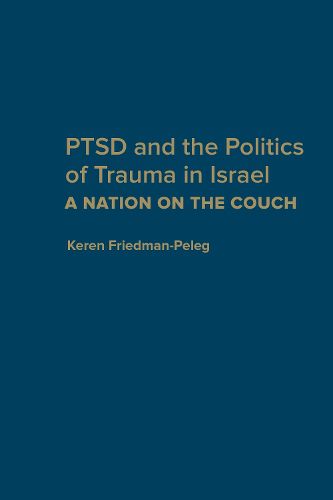Readings Newsletter
Become a Readings Member to make your shopping experience even easier.
Sign in or sign up for free!
You’re not far away from qualifying for FREE standard shipping within Australia
You’ve qualified for FREE standard shipping within Australia
The cart is loading…






Post-Traumatic Stress Disorder, or PTSD, has long been defined as a mental trauma that solely affects the individual. However, against the backdrop of contemporary Israel, what role do families, health experts, donors, and the national community at large play in interpreting and responding to this individualized trauma?
In PTSD and the Politics of Trauma in Israel, Keren Friedman-Peleg sheds light on a new way of speaking about mental vulnerability and national belonging in contemporary Israel. Based on ethnographic fieldwork conducted at The Israel Center for Victims of Terror and War and The Israel Trauma Coalition between 2004 and 2009, Friedman-Peleg’s rich ethnographic study challenges the traditional and limited definitions of trauma. In doing so, she exposes how these clinical definitions have been transformed into new categories of identity, thereby raising new dynamics of power, as well as new forms of dialogue.
$9.00 standard shipping within Australia
FREE standard shipping within Australia for orders over $100.00
Express & International shipping calculated at checkout
Post-Traumatic Stress Disorder, or PTSD, has long been defined as a mental trauma that solely affects the individual. However, against the backdrop of contemporary Israel, what role do families, health experts, donors, and the national community at large play in interpreting and responding to this individualized trauma?
In PTSD and the Politics of Trauma in Israel, Keren Friedman-Peleg sheds light on a new way of speaking about mental vulnerability and national belonging in contemporary Israel. Based on ethnographic fieldwork conducted at The Israel Center for Victims of Terror and War and The Israel Trauma Coalition between 2004 and 2009, Friedman-Peleg’s rich ethnographic study challenges the traditional and limited definitions of trauma. In doing so, she exposes how these clinical definitions have been transformed into new categories of identity, thereby raising new dynamics of power, as well as new forms of dialogue.